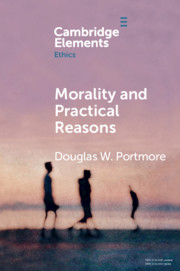Element contents
Morality and Practical Reasons
Published online by Cambridge University Press: 12 February 2021
Summary
- Type
- Element
- Information
- Series: Elements in EthicsOnline ISBN: 9781108580724Publisher: Cambridge University PressPrint publication: 04 March 2021
References
- 16
- Cited by



